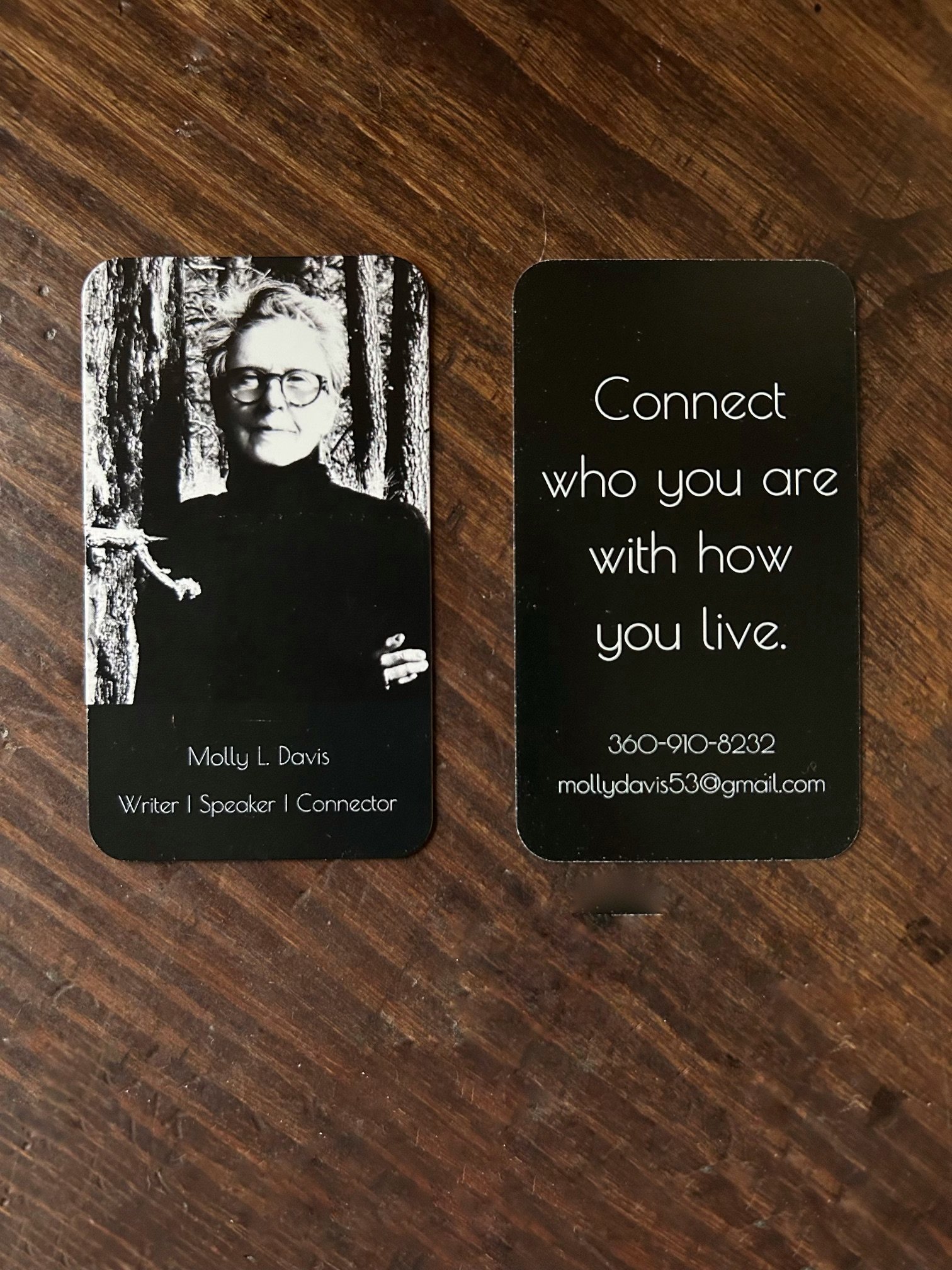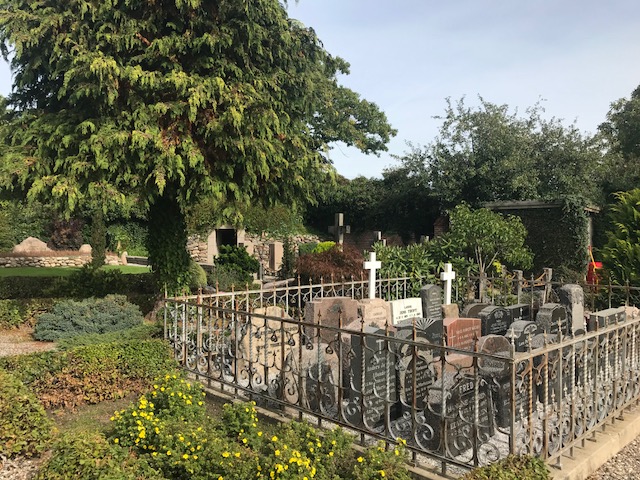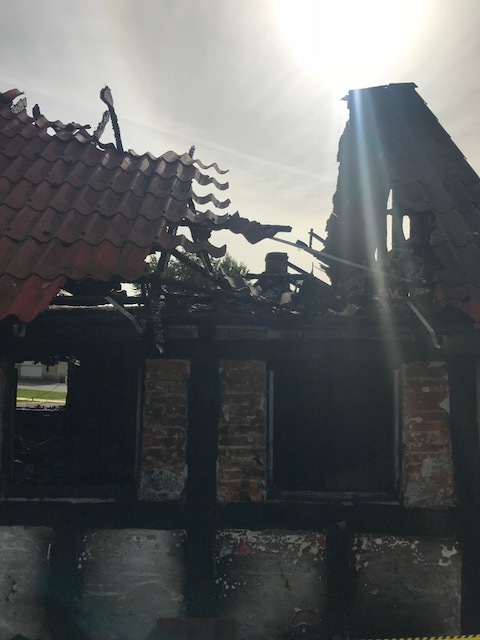On a whim I decided to create new business cards. It was an exercise to clarify and communicate who I am and what I’m about. In business, and in life. Because it’s all the same. Or at least it should be.
I asked my husband to snap a few photos. The camera is rarely my friend, so I wasn’t overly optimistic that he’d capture an image that would capture me in an authentic and real way. But I’ll be go to hell, he did.
The photo became the front of the card. It makes a statement. Here I am. What you see here is what you’ll get there.
Underneath the card, my name. Because with all due respect to The Bard, our name matters. It contains our whole life story. Given to us when we’re born, we’ll be remembered by it after we’re gone.
Underneath my name, what I do. Because what we do matters too. Writing and speaking are two of the ways I connect life’s many dots, and share what I discover with others. My work is always about finding ways for us to more closely connect who we are with how we live. In business, and in life. Because it’s all the same. Or at least it should be.
The back of the card contains the usual contact information. Because connection matters too. As human beings we are hard wired for connection. But it’s hard to connect with someone if you don’t know how to get ahold of them.
There was still a lot of blank space on the back. Enough room for one statement that would sum it all up.
It all turned out to be a great exercise. It forced me to distill it all down to what would fit on a business card. Or maybe it’s a life card. Because it’s all the same. Or at least it should be.
What would your card say?








